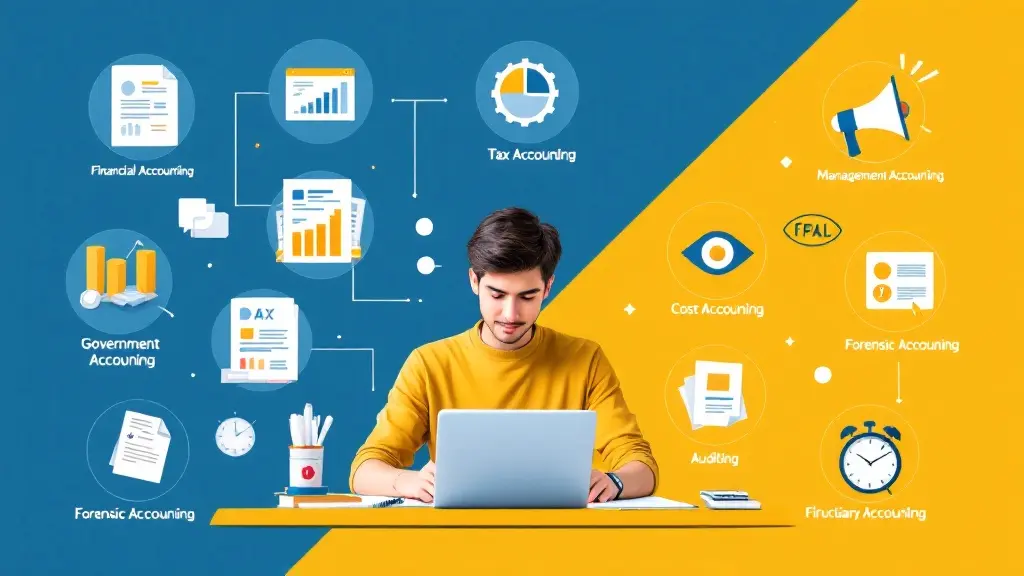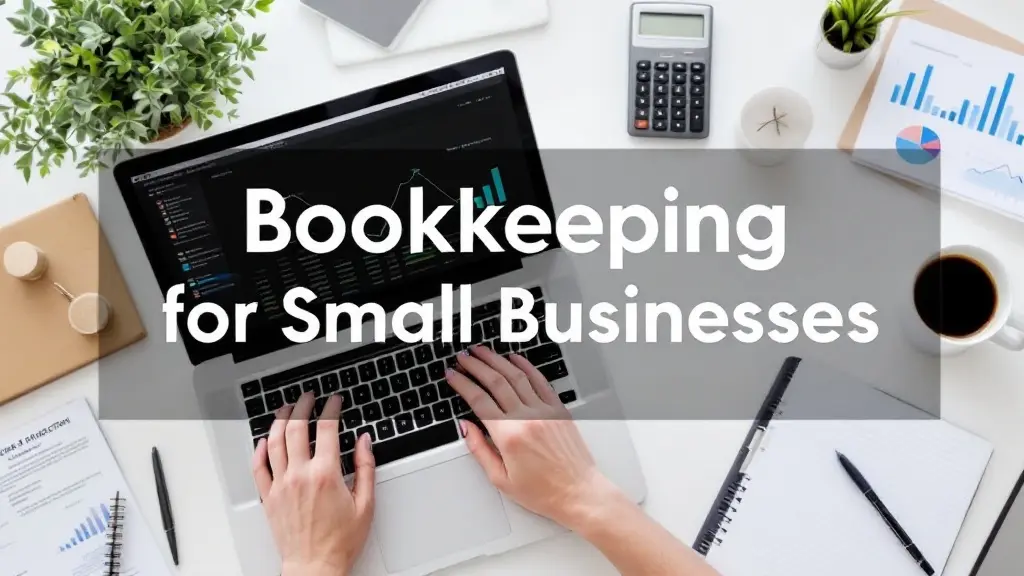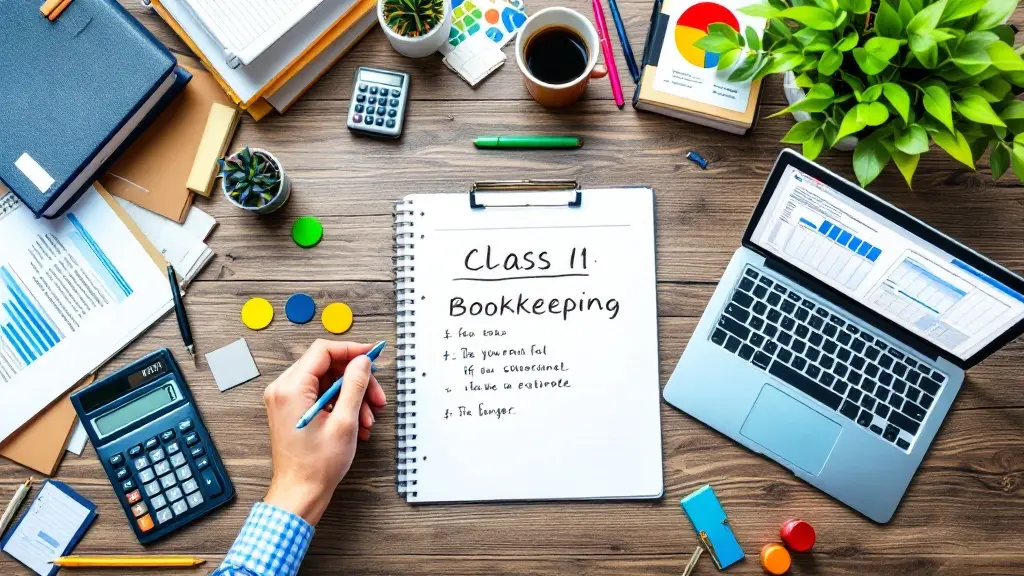Book Keeping and Accountancy – Class 11 Guide (2025)
Table of Contents
Most Read
Introduction
[fusion_dropcap class="fusion-content-tb-dropcap"]W[/fusion_dropcap]hen you hear the words “Book Keeping” and “Accountancy,” you might think they are the same thing. However, while they are closely related, they each play a different role in the world of finance and business.
If you’re a Class 11 student, understanding these basics is crucial, not just for exams but also for building a strong foundation for future studies and careers.
In this blog post, we’ll walk you through everything you need to know about Book Keeping and Accountancy—in a simple, easy-to-understand way!
What is Book Keeping?
The Simple Definition
Book Keeping is the process of recording all financial transactions of a business in a systematic and organized manner.
Think of it like keeping a daily diary, but instead of your thoughts, you record all the money coming in and going out.
Key Features of Book Keeping
- Systematic recording of transactions
- Chronological order (as they happen)
- Accuracy is very important
- Basis for preparing accounts
Why is Book Keeping Important?
- Legal Compliance: Businesses are required to keep financial records.
- Financial Analysis: It helps owners know if they are making profit or loss.
- Taxation: Proper records help in calculating correct taxes.
- Future Planning: Provides data that helps in budgeting and forecasting.
What is Accountancy?
The Broader Picture
While book keeping is about recording, accountancy is about interpreting, analyzing, summarizing, and communicating the financial information.
In simple words, accountancy = book keeping + analysis.
Main Functions of Accountancy
- Recording: First step, handled by book keeping
- Classifying: Sorting transactions into categories
- Summarizing: Preparing financial statements like balance sheets, profit & loss accounts
- Analyzing: Understanding the reasons behind profits or losses
- Interpreting: Explaining financial results to stakeholders
- Communicating: Sharing reports with management, investors, government, etc.
Difference Between Book Keeping and Accountancy
| Feature | Book Keeping | Accountancy |
|---|---|---|
| Scope | Narrow (only recording) | Wide (recording + analysis) |
| Objective | Maintain accurate records | Provide meaningful financial reports |
| Skills Needed | Basic knowledge of accounting | Deep understanding of finance |
| Users | Mainly internal (clerks, accountants) | Internal and external (management, investors) |
| Decision Making | No | Yes |
Objectives of Book Keeping and Accountancy
Objectives of Book Keeping
- Systematic Record: Ensure every transaction is documented.
- Evidence in Court: Well-maintained books are accepted as evidence.
- Financial Position: Help owners track their cash flow.
Objectives of Accountancy
- Ascertain Profit or Loss: Through Profit and Loss Account
- Depict Financial Position: Through Balance Sheet
- Assist in Decision Making: Provide financial insights for better planning
Importance of Book Keeping and Accountancy in Class 11 Curriculum
You might wonder, why study this in Class 11?
- Foundational Knowledge: Prepares you for advanced studies in commerce and finance.
- Life Skills: Helps in managing personal finance better.
- Career Opportunities: Leads to careers like Chartered Accountant (CA), Company Secretary (CS), Financial Analyst, and more.
- Entrepreneurship: Essential for running your own business successfully.
Basic Concepts You Must Know
In Class 11, you will come across certain basic concepts that form the pillars of accountancy:
1. Business Entity Concept
The business and the owner are treated as separate entities.
2. Money Measurement Concept
Only transactions measurable in money are recorded.
3. Going Concern Concept
The business is assumed to run indefinitely unless otherwise stated.
4. Cost Concept
Assets are recorded at their original cost.
5. Dual Aspect Concept
Every transaction affects two accounts (e.g., giving cash for goods).
Golden Rules of Accounting
When learning book keeping and accountancy, the golden rules are your best friends. They are based on the three types of accounts:
| Type of Account | Golden Rule | Example |
|---|---|---|
| Personal Account | Debit the receiver, Credit the giver | Paying suppliers, receiving cash |
| Real Account | Debit what comes in, Credit what goes out | Buying a computer |
| Nominal Account | Debit all expenses and losses, Credit all incomes and gains | Salary paid, commission received |
Memorizing these will make journal entries much easier!
Steps in the Accounting Cycle
Understanding the accounting cycle will give you a complete overview of how businesses manage their finances:
- Identify Transactions
- Record in Journal
- Post to Ledger
- Prepare Trial Balance
- Adjust Entries
- Prepare Financial Statements
- Closing the Books
Each step builds upon the previous one. In Class 11, you will focus mainly on Journal Entries, Ledger Posting, and Trial Balance.
Common Terms You Should Know
| Term | Meaning |
|---|---|
| Assets | Resources owned by the business (cash, property) |
| Liabilities | Debts or obligations (loans, creditors) |
| Capital | Owner’s investment in the business |
| Revenue | Income earned from business activities |
| Expense | Costs incurred in running the business |
| Drawings | Money or goods taken by the owner for personal use |
Pro Tips to Excel in Book Keeping and Accountancy
- Practice Daily: Like maths, accountancy improves with practice.
- Understand Concepts: Don’t just memorize—understand why you are making an entry.
- Create Your Own Examples: Think of small daily life examples (e.g., pocket money = capital).
- Use Visual Aids: Charts, tables, and diagrams help retain concepts better.
- Stay Consistent: Regular study is better than last-minute cramming.
Future Scope of Book Keeping and Accountancy
If you build a strong foundation now, exciting career options await you, such as:
- Chartered Accountant (CA)
- Certified Public Accountant (CPA)
- Investment Banker
- Financial Advisor
- Cost Accountant
- Auditor
- Business Analyst
Each of these careers is highly respected and offers great growth opportunities.
Conclusion
Book Keeping and Accountancy are not just about numbers; they are about understanding how businesses survive and grow.
As a Class 11 student, mastering these concepts now will give you an edge, whether you pursue a career in finance, start your own business, or simply manage your personal finances smartly.
Stay consistent, keep practicing, and remember—the world of finance starts with the basics you are learning today!
Final Tip: Bookmark this guide for quick reference throughout your Class 11 journey. Good luck!
Visit Our Website : Accounting.in









